Customers today aren’t satisfied with traditional hot beverages – they want premium lines and coffee pods for that coffee shop experience
When the temperature outside plummets it’s no surprise that customers are looking for something warm and comforting from their local c-store.
But today hot beverages are about more than just an instant cuppa from the vending machine plus some tea bags for work. Innovation is changing the game as customers au fait with skinny lattes and green tea demand more sophisticated drinks both on-shelf and to-go.
Mintel’s reading of the tea leaves shows that in 2017 c-store stalwarts such as instant coffee and traditional tea are losing favour, with sales down 1% and 14% respectively. It’s a downward trend Mintel believes will continue, unless younger people seduced by the bright lights of Starbucks and Costa start buying into what they see as old-fashioned formats.
Luckily, as standard tea and coffee sales fall, new products – from premium coffee pods to functional teas – are giving retailers fresh routes to growth. And, of course, c-store managers seeing the success of the big coffee chains can buy into the category through hot beverages to go.
The rise of the coffee pod is just one reason retail coffee sales have grown to £1.12bn in the UK. According to Mintel, the drive towards premium options is helping push ground coffee to the fore, too.
For Steve May from Pelican Rouge this is great news, since his focus is on getting more listings for the company’s upmarket 250g ground coffee packs.
“A lot of convenience stores I visit have 80% of the shelf allocated to instant coffee,” he says. “That’s natural because instant has historically been a very convenient choice. But I think today people want to replicate the higher-end coffee they’ve had on the high street back in the office or at home. That’s where we come in.”
May also maintains that canny consumers are looking for hyper-local coffees and cites the example of his neighbour who makes his own roast coffee in the garage and then sells it to farmers’ markets.
Café culture helps boost chocolate sales
The chocolate beverage market is worth nearly £93m in the UK (Nielsen Total Value MAT to w/e 24 December 2016) and Susan Nash, trade communications manager at Mondelez International believes the category has significant headroom for growth.
She adds: “Currently, only one in two households buy hot chocolate, yet it is a highly popular drink in the out-of-home market thanks to rise of the café culture. As the leading brand, we are committed to innovation and investment to help drive growth within the category.”
With a 53.5% market share, Mondelēz International is the number one manufacturer in the category, with Cadbury as the number one brand (Nielsen, RSV four weeks to w/e 1 October 2016).
Mondelez introduced Cadbury Freddo Drinking Chocolate in August, to help retailers warm up sales with families.
Data has shown that after just five months in the market, Cadbury Freddo Drinking Chocolate is the sixth best-selling drinking chocolate SKU. (Nielsen, RSV four weeks to w/e 1 October 2016).
Vic Price from Spar Colyton, Devon, agrees that locally-ground coffee works for him. He also says that the store’s Jack’s Beans machine is his not-so-secret weapon for getting customers to return day after day.
“We used to have a little coffee machine and sales were going quite well so we decided to upgrade it to proper bean-to-cup offer,” he says.
“Then Jack’s Beans came along and we thought yes, we like the product and the taste and customers seem to really go for it as well.”
Vic says that twinning to-go coffee with the right food-to-go offer attracts an even higher daily footfall. There’s always a food-to-go deal at his store involving hot drinks – the latest is a partnership with Country Choice whereby he’ll be offering a free muffin with every coffee. This drives trial for the brand and rewards loyal shoppers.
“We’ve got the machine right next door to hot food take-away,” he says. “There are several people who come in on a daily basis and the first thing they do is go straight to get a coffee and their breakfast. But the interest continues throughout the day, it’s not just a morning thing.”
Over at Wharfedale Premier Store in Hull, Sam Coldbeck says that it’s Tchibo that gets regulars revved up for the day.
“We got into coffee-to go quite early and have had the machine for five years now,” she says.
“We knew we wanted something that was fresh and bean-to-cup. Now we’re doing on average about 16 to 20 cups a day and the majority of that is early morning with our breakfast offer.”
Sam believes that Tchibo helps her differentiate the store’s hot drinks offer from competitors. For instance, though a rival store features another big coffee-to-go brand Sam maintains that hardy customers requiring an early-morning caffeine hit prefer the stronger coffee that she believes Tchibo provides.
Of course, coffee-to-go isn’t for everybody. Anita Nye from Eldred Drive Stores in Orpington, Kent, says that the store doesn’t do the category out of solidarity with fellow shops.
“We used to have one of those old-fashioned leases from the council where if another shop did something then we didn’t. Today we’ve got a baker that does hot drinks and so we don’t do them. Everyone’s struggling for sales so we’re not going to take away something that someone’s already doing. Plus, space is a big issue with us as well.”
To be fair, space isn’t just an issue for the coffee machine. Hot drinks is a serious ‘long-tail’ category in which the various brands and varieties could easily take up a whole wall of a shop.
At her store, Sam has a five metre by two metre space for hot drinks in which to please as many customers as possible. This includes what she describes as “pretty much the full range”, with everything from Nescafe’s coffee-and-milk sachets to traditional Yorkshire Tea (a strong local favourite).
A brew with benefits
As more functional teas hit the market manufacturers are seeking fresh ways to give their drinks a healthy edge. And now Nature Works is pushing the category even further with Daily Cultures Probiotic Tea.
So far shoppers have been happy to consume probiotics as part of a ready-made drink, but is a probiotics-infused tea bag taking things too far?
Helen Cutmore, Nature Works’ head of marketing, says the time is right for a probiotic tea to enter the mainstream.
“Last summer I ran a national study which showed that more than 80% of people associated probiotics with good health,” she says.
“There’s a lot more conversation in the press about gut health and how the science is breaking new ground. So people are actively hearing about it.”
Cutmore says that the tea bags make it easy to “maintain a habit” with probiotics since tea is such an everyday drink.
“We see ourselves as a brand for everyday – we don’t see ourselves as a health product,” she says.
Sam says that while covering all the standard formats and the big brands is important, she’s also keen to refresh her range with new lines. “Our customers don’t tend to like any ‘funny stuff’ as they call it,” she says. “So we do particularly well with Yorkshire Tea, PG tips and Tetley, and I think we always will – they’ll probably out-sell the rest by 10 to one.
“But you know, we have lots of people coming into the area who like a bit of a mix on the shelf – and so it’s about trying to keep everyone happy. It’s about adding the ‘wow factor’ too and getting people to think: ‘they’ve got a good range for a convenience store.’”
At the moment Sam is trying out the new Tetley Super Teas range – which include vitamins to add an extra ‘functional’ edge to tea.
“We’ve got them in at a pound which is probably the same price as the supermarket. It’s offering people something different at this time of year, so if people are looking for a healthy option then it’s there.
“If you’re going to experiment, I think tea and coffee is one of those safer options because the dates are so long that you can safely dabble without too much trouble.”
Once found pretty much exclusively at health stores, fruit and herbal teas are now squarely part of the retail mainstream. In fact, now big tea manufacturers like Tetley’s and PG tips have got behind the category, green, fruit and herbal tea bags make up a combined 29% of value sales in the segment (Mintel).
This new-found popularity is helping change the range on the nation’s shopfloors. Anita says that they’re doing a lot more fruit and herbal teas and highlights decaf as a sector that’s becoming more popular with customers.
Clipper Teas brand controller at Wessanen UK Rebecca Vercoe says developing new products that appeal to younger generations is “absolutely vital to the future health of the tea market”.
Clipper has just extended its Infusions range with five new organic herbal teas – Calmer Chameleon, Flower Power, Happy Mondays, Skinni Mintie and Skinni Vanilli (rrp: £2.39/20 envelopes). The organic Infusions blends offer consumers a tea for every occasion and use only natural ingredients. Each tea is designed to suit a variety of needs and mindsets.
Whatever the range available, for most customers price is also key. “It’s just like all of our grocery items,” says Vic. “With a convenience store the thing that sells the best is what’s on promotion. For instance, when we’ve got 80 PG tips teabags on promotion it basically doubles our sales.”
While instant coffee might have lost its buzz, other innovations have buoyed the coffee market to grow 3.2% to £1.12bn (Mintel).
The rise of coffee pods is part of the reason for this breakthrough. Mintel estimates that three in 10 people have a coffee pod machine in their kitchen. But although they’re undeniably popular, the relatively high price point has been a barrier for many c-stores.
“I think that if there’s probably five or six different machines, and then all the different kinds of pods that go with them, you’re talking about a really big offering,” says Sam. “We’ve stayed away from it completely rather than try and dabble in the wrong area.”
However, other retailers are dipping their toes in the water, with some success. “We’ve just started selling the Tassimo pods,” says Anita. “We started just before Christmas as we reckoned that people were going to get coffee machines as presents over the holiday.”
Anita says that it’s quite “surprising” that people come in for the pods, since they cost around £4-£5 a pack. The store is currently hedging its bets over whether they’ll keep their space on-shelf.
“Over Christmas people tend not to worry about the expense of things,” she says. “I don’t know if they’ll buy the pods throughout the year – so we’ll see.”
Whatever the future holds, the revolution in formats is proof that the traditional hot beverages market is changing. And in a decade’s time coffee pods and green tea might become as ubiquitous on the shelves as black tea bags and price-marked Nescafé.
The future for tea
“Changing dynamics and a wider choice of beverages are all challenges for tea,” points out Peter Dries, director of customer and shopper marketing for Tetley
He adds that while everyday black teas still dominate, sales are in decline and overtrading is having an effect.
Despite this, he believes that tea hasn’t lost its place at the nation’s tables, citing Kantar data that shows tea has a 58.7% share of consumption compared with coffee in the UK.
Dries sees moving into higher-value teas, premium blends and healthy sectors as the way forward for the category. Tetley has tweaked its range to help c-stores achieve this evolution, with ranges such as Tetley Pure Green 20s and its new Super Tea functional tea selection.
It’s a similar story over at PG tips. Anouk Lange, brand building director for tea at Unilever, says that its value growth has leapt 20.3% in an expanding fruit, herbal and green tea market.
“As a brand we are continuing to invest in this area to tap into the growing demand for new and experimental flavours at an accessible price point,” Lange says.
Of course, sometimes all customers want is a cup of real British tea, which suits heritage brands such as Yorkshire Tea just fine.
“Yorkshire Tea is the fastest-growing major tea brand in the convenience sector,” says Helen Boulter, channel controller at Taylors of Harrogate.
“For more than 40 years, Yorkshire Tea has provided the nation with a ‘proper brew’ as it offers great taste, warming comfort, and the perfect recourse to relax.”

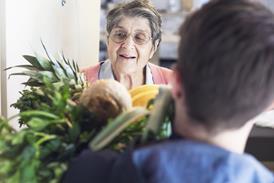
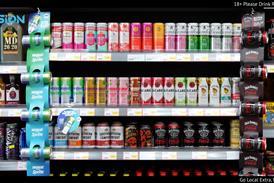




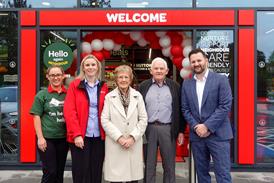


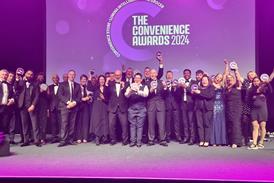
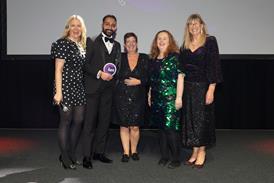
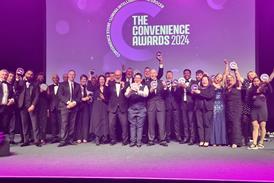




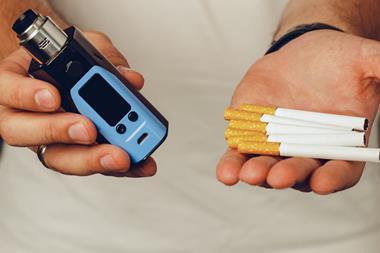

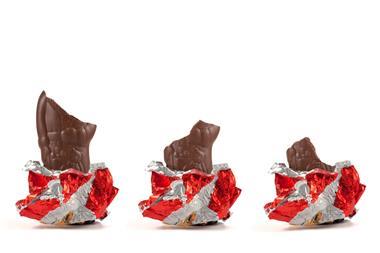
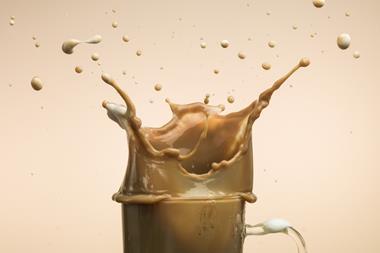
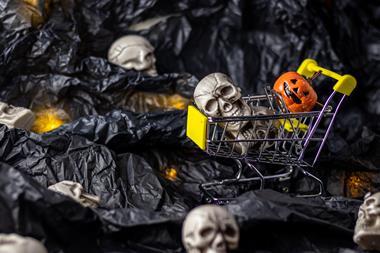
No comments yet